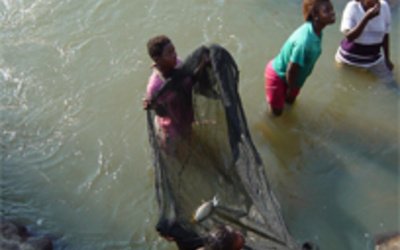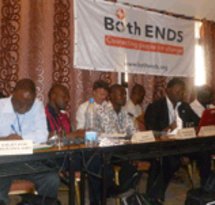
Both ENDS and partner organisation Amichocó (Colombia), BARCIK (Bangladesh) and ANCE (Togo) acknowledge the important role of gender inequality in our work on environmental and development issues. We jointly set out to test a practical approach to mainstream gender in our work on natural resources management, each in its specific context and based on its specific ambition.

On Monday 11 May, at the government's request, the Advisory Council on International Affairs (AIV) published an emergency advisory report on how the Netherlands can make an effective contribution to the worldwide fight against the Corona virus. Together with companies, scientists and environmental, human rights and development organisations, Both ENDS is today presenting a response to this report, in which we make a number of suggestions for investing in countries and people with insufficient resources to tackle the crisis effectively.

"This is a turning point in global water management," said Both ENDS colleague Tobias Schmitz. He was in Geneva for a UN meeting on the future of water management or ‘the world after 2015’, when the term for the current Millennium Development Goals has passed. The conference had a special focus on the management of water resources and of waste water. We asked Tobias why he was attending the meeting and what were – and should be- the main issues in his view.

What would the world look like if men and women around the world would have the same opportunities in life? What would politics look like if half of the world's leaders would be female? What would development look like if men and women would have equal access to and control over the natural resources they depend upon?

All over the world countries conclude agreements with each other in order to receive access to foreign markets. The Member States of ASEAN (Association of Southeast Asian Nations)* want to establish a common market in 2015 to promote economic growth. Officially ASEAN has formulated the goal of making this growth as sustainable, fair and inclusive as possible. However, in many cases local communities that depend on natural resources such as forests will be the victims of this agreement.

On November 6th 2012 ‘La Nation’ covered a workshop organised by Both ENDS and partner organisation JVE-Benin. The workshop aimed at bringing together policymakers and NGOs that are active in various river basins throughout Africa, and to familiarize them with the so-called ‘Negotiated Approach’. Professor Vijay Paranjpye of Gomukh Trust, a local organisation from India that has been at the base of the development of this alternative approach to managing natural resources, was present to inspire African delegates with experiences from the Indian practice.